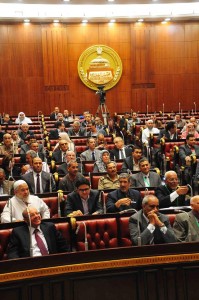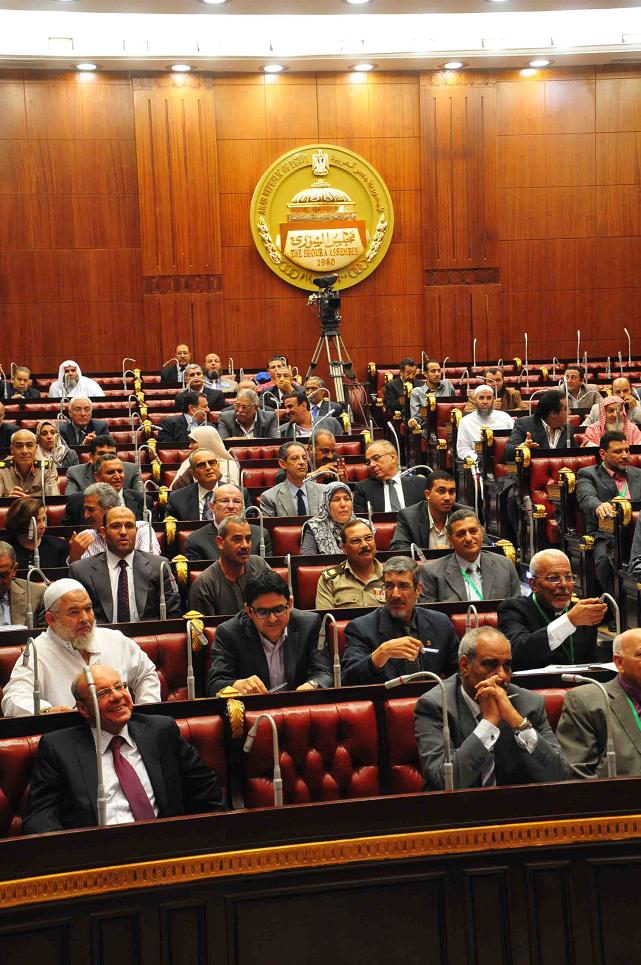
Hassan Ibrahim / DNE
Members of the Constituent Assembly tasked with drafting Egypt’s new constitution have accused the assembly’s drafting committee of wielding too much power and changing the meaning of articles from what the original authors in other committees intended.
The assembly met on Tuesday to discuss the first draft of the rights, obligations and public freedoms section of the constitution.
The 51 articles of the section were initially discussed and decided upon by the rights and freedoms committee, then sent to the drafting committee so that they could be formulated in legal language before being discussed in a general meeting of the assembly.
Several members of the rights and freedoms committee expressed displeasure at what they called “the drafting committee’s interference in areas beyond its jurisdiction.”
The drafting committee is tasked with receiving deliberations and decisions on constitutional articles from the assembly’s four specialised committees then writing them in a constitutional and legal format, aiming to avoid potential loopholes.
However, several rights and freedoms committee members accused the drafting committee of changing the meaning of not less than 12 articles out of 51 submitted.
Furthermore, the drafting committee also added articles that were not submitted and removed others that were, which representatives explained by saying that all submitted articles were maintained but some were moved to other sections and that the new articles were ones submitted by other committees that the drafting committee felt belonged better to the rights, obligations and public freedoms section of the constitution.
Some of the 12 changed articles included the article 8 addressing religious freedoms, assembly member Talaat Marzouq said.
The current article reads: “Freedom of belief is guaranteed and the state guarantees the freedom of building places of worship for the practice of the heavenly religions in accordance with the law provided public order is not violated.”
It is unclear what the original article the committee formulated looked like.
Nubian human rights activist Manal El-Teiby was in attendance, despite her announcement last week that she had resigned from the assembly.
El-Teiby, who was a member of the rights and freedoms committee, thanked the drafting committee for “fixing the errors” of her committee when it came to personal and civil rights, but faulted it for changing the meaning of many articles related to economic and social rights such as the rights to housing, healthcare, and minimum wage.
The draft will now go back to the drafting committee so that the suggestions of assembly members can be taken into consideration before a final draft of the section is voted on by the assembly at large, drafting committee rapporteur and Minister of State for Legal and Parliamentary Affairs Mohamed Mahsoub said.
Members of the other specialised committees warned the drafting committee that they would not accept the drafting committee’s interference with their submitted proposals and that they expected the committee to stick to the articles it receives.
There are three other sections left to draft in the constitution: the basic principles of state; independent and oversight bodies; and system of governance which includes the legislative, judicial, and executive branches of government as well as local governance, the military, and the police.
